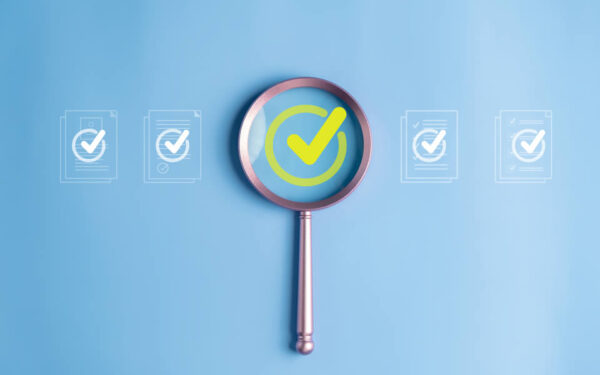Season of Giving: The Essentials of Charitable Contribution Substantiation
By Taryn Smith, Senior Manager, Tax & Business Services
The holiday season is a time when individuals reflect on what they are thankful for. With this reflection comes an increase in philanthropic activities to their charity of choice. During this time of year, processing donations can be quite hectic for our charitable organization. It is essential for individuals and organizations to keep charitable contributions substantiation in mind during the donation process.
What is Charitable Contribution Substantiation?
Charitable contribution substantiation serves a dual purpose: it ensures that donors receive the appropriate recognition and substantiation for tax purposes of their contributions while also maintaining the integrity and transparency of the charitable organization’s financial records. The Internal Revenue Service (IRS) mandates, under 170(f)(8), specific substantiation requirements for donors to claim a tax deduction for their charitable contributions. These requirements vary depending on the nature and amount of the donation.
What if my organization received a cash donation?
For monetary contributions of any amount, donors must have a bank record or a written communication from the charitable organization containing the organization’s name along with the date and amount of the contribution.
- For monetary donations under $250, a bank statement, canceled check, or credit card statement will suffice as substantiation. An organization does not have to provide any documentation to the donor if a donation is less than $250.
- For monetary donations of $250 or more, the IRS requires a more formal acknowledgment from the charitable organization.
What if my organization receives a non-cash donation?
As with cash donations, non-cash donations greater than $250 must have a formal acknowledgment from the organization. However, the donors are required to have more substantiation included with their tax return for the tax year the donation is being claimed.
- For donations valued at less than $500, donors should maintain records detailing the description and condition of the items.
- When contributions exceed $500 but are less than $5,000, donors must complete Section A of IRS Form 8283, which must be attached to their tax return. In addition to this form, detailed records of the donated items must be kept, including their fair market value and the method used to determine it.
- For non-cash donations exceeding $5,000, aside from completing Section B of IRS Form 8283, donors must also obtain a qualified appraisal for the donated property. A qualified appraiser must conduct the appraisal and accompany the tax return on which the deduction is claimed.
In addition to the written acknowledgment, Form 8283 Part V is required to be completed and signed by the charitable organization. We recommend the organization request a copy of the appraisal before completing the form. The organization should keep the executed Form 8283 and appraisal to document this donation properly.
Furthermore, for contributions of vehicles, boats, and airplanes valued at more than $500, the charitable organization must complete Form 1098-C or a similar contemporaneous written acknowledgment. In cases where the organizations sell the contributed vehicles, boats, and airplanes, additional reporting could be required.
What about my organization’s holiday gala?
The IRS requires the organization to provide acknowledgment to the donor for any goods and services they receive for a payment in excess of $75. If a donor purchases a seat at a holiday gala fundraiser, they are receiving goods and services for a night out on the town. For example, if an organization charges $150 a seat and provides food, beverages, and entertainment, the ticket’s total price cannot be considered a charitable donation. The organization is responsible for determining the fair market value of the goods and services provided to the donor. When a donation is made, the donor must be informed of the details. This can be done either at the time of ticket purchase or later through a formal letter of acknowledgment.
It is important to note that this is not just limited to a holiday gala and should be kept in mind for any fundraising event where an organization provides quid pro quo.
What is required to be included in a contemporaneous written acknowledgment (CWA) under IRC 170(f)(8)(B)?
The IRS requires certain items to be included in a CWA to be considered properly completed. The acknowledgment must be in writing, i.e., an email, formal letter, etc. The CWA must state the amount of cash contributed and describe the non-cash property. It must document whether the organization provided goods or services in exchange for the donation and a good faith estimate of the value of such goods or services. If none were supplied, we recommend adding a note to the CWA stating that.
When is the CWA required to be provided to the donors?
Per IRC 170(f)(8)(C), the charitable organization must provide taxpayers a CWA no later than the earlier of two dates: when the taxpayer files their tax return for the year they made the donation, or the due date (including extensions) for filing that return. It is important to provide the documentation needed for the donors to properly claim the deduction as soon as possible to avoid any detrimental impact on the generous donor.
As the holiday season comes to a close, the organization should review its practices on charitable substantiation. Some organizations find it beneficial to issue the acknowledgement as soon as a donation comes in, while others will wait till the tax year closes to complete this task. No matter the timing, individuals and organizations need to be aware of what type of charitable substantiation is required to ensure compliance with IRS regulations. While the IRS might not require substantiation in some cases, thanking your donors is always appreciated. The rules on charitable giving can be complex. Always be sure to consult your tax advisor for any donation and substantiation questions.




















